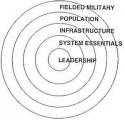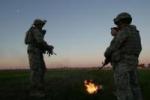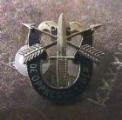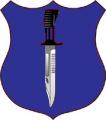Rob- so wrong, but so right. We need to STOP playing these small wars games and become the referee.
I'll provide an example to show Mike's game plan using Nuristan and Korengal Valley, and then y'all can critique it. If only SWC had a dry erase board, this would be much easier.
Concise History of Nuristan and Korengal Valley- the end of the road of modernization
- Marco Polo used this area as a crossing point into India.
- Some of the toughest Mujahadeen fought against the Russians live here in retirement.
- During the 1990's, AQ established training camps here due to the inhospitable terrain
- Some of the toughest battles of OEF were fought here to include COP Wanat, OP Bari Alai, COP Keating, and a Chinook down.
Current Situation:
- Denied area.
- Taliban controlled using coersive tactics.
- Tribal leaders ignored by gov't.
- Greg Mortenson built a high school there.
- Col. Kolenda, former BN CDR and AO owner, is working on the higher staff. He has connections with tribal elders.
Mission. X BN, as part of Afghan Surge, will conduct COIN operations in Nuristan Province IOT secure the populace and set conditions for transfer of authority to Gov't of Afghanstan.
COA ONE: Slap Based Warfare
Task: Clear, Clear, Clear. Hands across Nuristan to clear of all enemy forces and secure terrain.
Intent: Secure Terrain
Method: Direct- Employ mass to overwhelm and set conditions for Pop-Centric COIN
Scheme of Maneuver. Covertly infiltrate behind enemy lines to FIND enemy training camps. Main Body conducts combined ground and air unilateral assualts on key villages to FIX and FINISH. Blocking forces deploy to prevent enemy exfiltration. Small outpost will be left in place to hold ground. Once violence is mitigated, then stabilization and reconstruction operations can begin. Examples, Iraq Surge in Diyala Province and Baghdad.
Likely Outcome: High casualty rates with little success. Unintended consequences will result in perpetual violence as grievances increase exponentially.
COA TWO: Gant Based Warfare
Task: Develop coaltion of tribes to secure Nuristan.
Intent: Employ sphere of influence through social networks to overwhelm enemy
Method: Indirect- By, With, and Through Indigenous Forces.
Scheme of Maneuver. COL Kolenda and Greg Mortenson deploy as advanced reconnaissance element to broker jirga (meeting) with tribal elders. At jirga, negotiations are made on the design, equipment, and training of paramilitary forces, local tribal militias. Additionally, through the Central Asia Institute, plans are brokered to build schools in the area at a sufficient cost using local labor. Finally, communications plan is set in place to facilitate share of information. Once the deals are in place, coalition forces will supervise training and employment of militia groups. Moreover, CF will provide ISR, indirect fires, QRF, and Casevac to assist locals defending their villages. Over time, as more and more villages are secure, real progress is made.
Likely Outcome: Low cost, Low manpower will potential for huge return on investment.
COA THREE: Do Nothing. Abandon Nuristan and hope that the Taliban does not take over and re-establish AQ training camps.
Thoughts?
Mike






 Reply With Quote
Reply With Quote
 ) to show the utility of systems thinking.
) to show the utility of systems thinking. ).
).
 All The Way,Sir
All The Way,Sir





 opulation ratio, and it's much easier and cheaper to focus on keeping them from overtly controlling areas than to hunt them down.
opulation ratio, and it's much easier and cheaper to focus on keeping them from overtly controlling areas than to hunt them down.


Bookmarks